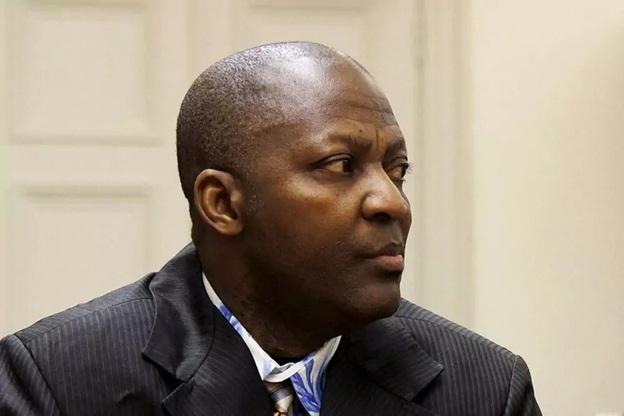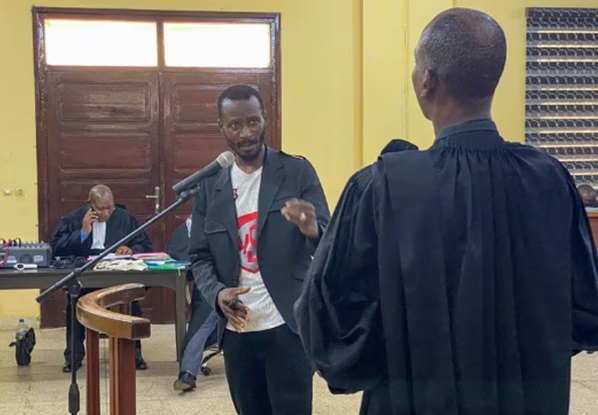The U.S. Supreme Court says it will take up an appeal by former President Donald Trump on the question of whether presidential immunity protects former presidents from being prosecuted for “criminal prosecution for conduct alleged to involve official acts during his tenure in office.”
An appellate court judge denies Trump’s request to stay a ruling obliging him to pay a bond of $454 million while he appeals the decision, but the judge does grant him the right to seek loans from New York banks to raise that sum. Earlier in the day, lawyers for Trump said it was “impossible” for their client to raise the full bond amount set by Judge Arthur Engoron and proposed paying just $100 million instead. In response, New York Attorney General Letitia James argued that there was “no merit” to that request and that Trump should be forced to pay the full amount.
Here are the latest legal developments involving the billionaire hoping to be reelected to the White House in 2024.
Jan. 6 election interference
Supreme Court to hear Trump’s presidential immunity appeal
Key players: U.S. Supreme Court, U.S. Court of Appeals for the D.C. Circuit, special counsel Jack Smith, Judge Tanya Chutkan
- The Supreme Court announced Wednesday that it would hear Trump’s appeal of a lower court’s ruling that presidential immunity does not protect him from prosecution for his efforts to overturn the 2020 presidential election, USA Today reported.
- In a statement, the court said it would limit arguments to the question of “Whether and if so to what extent does a former President enjoy presidential immunity from criminal prosecution for conduct alleged to involve official acts during his tenure in office.”
- The court will hear oral arguments the week of April 22.
- Chutkan ruled that presidential immunity did not protect Trump, but the former president’s lawyers appealed that decision.
- In December, Smith had asked the court for an expedited ruling on the presidential immunity question. At that time, the court declined.
- Instead, a three-judge panel with the Court of Appeals for the D.C. Circuit took up the case, siding with Chutkan. Trump then asked the Supreme Court to pause that ruling so that the full appeals court could hear the case.
Why it matters: Trump has sought to delay the start of the federal election interference case until after the 2024 presidential election. But if the court rules against him, it is conceivable that a trial could begin in August or September.
New York financial fraud
Judge denies Trump motion to delay payment of $454 million bond
Key players: Appellate Court Judge Anil Singh, Trump lawyers Clifford Robert and Alina Habba, New York Attorney General Letitia James, Judge Arthur Engoron, Supreme Court of New York Appellate Division
- Singh denied a motion by Trump’s lawyers for a stay that would have allowed them to pay just $100 million of the court-ordered $454 million bond imposed for years of fraudulent business practices in New York.
- But the judge did stay portions of Engoron’s ruling, saying Trump’s sons Eric and Donald Jr. could remain in control of the family company as the appeal played out and that Trump could apply for loans from New York-based banks to help him cover his bond.
- In a court filing Wednesday morning, Robert and Habba proposed that as he awaits his appeal to be heard by a New York appellate court, Trump should be allowed to pay a $100 million bond instead of the $454 million mandated by Engoron, USA Today reported.
- In a letter to the appeals court, the lawyers said that because Engoron’s verdict prevented him from doing business in New York for three years, including borrowing money from state banks, he was unable to raise the full bond amount.
- “The exorbitant and punitive amount of the Judgment coupled with an unlawful and unconstitutional blanket prohibition on lending transactions would make it impossible to secure and post a complete bond,” the lawyers wrote.
- Instead, the lawyers continued, Trump planned to post a different amount. “Appellants nonetheless plan to secure and post a bond in the amount of $100 million,” they wrote.
- James, who has said she will look to seize Trump’s real estate assets if he fails to post bond, dismissed the request in her own filing.
- “There is no merit to defendants’ contention that a full bond or deposit is unnecessary because they are willing to post a partial undertaking of less than a quarter of the judgment amount,” James wrote. “Defendants all but concede that Mr. Trump has insufficient liquid assets to satisfy the judgment; defendants would need ‘to raise capital’ to do so.”
- Engoron’s ruling that Trump be prohibited from obtaining loans from New York-based banks was warranted, James continued, as it was the central issue of the fraud trial.
- “These are precisely the circumstances for which a full bond or deposit is necessary, where defendants’ approach would leave OAG with substantial shortfalls once this Court affirms the judgment,” James wrote.
- Trump has until March 25 to pay off the full amount of his bond, and every day that he doesn’t pay, the amount goes up more than $100,000 in interest.
Why it matters: The ruling by the appeals court judge means that Trump will have to secure bank loans or he could be forced to sell off his real estate holdings in order to make bond. Source: Yahoo News







